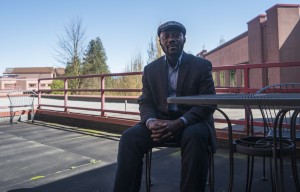
In Prof Talk, The Cascade asks professors for detailed explanations of complex, currently unfolding events. This week, we asked Edward Akuffo, a political science professor whose writing and lecturing focus is international relations, globalisation theory, human security and international humanitarian law, about the Syrian refugee crisis. In addition to Canada’s promises to welcome refugees, which has been met by some with controversy, protests and riots have occurred throughout Europe since Germany’s chancellor, Angela Merkel welcomed over 500,000 refugees into the country. As Syrian refugees face legal, social, and economic issues in a “welcoming host country,” it’s worth asking: how will countries work towards encouraging treatment of them as equal residents?
What is access to social services like for asylum seekers in Germany?
The European Union has what is called the “Qualification Directive,” which was put in place around 2004. Now, that qualification directive set out the minimum standards that is required of states as they host refugees. The EU has minimum standards so for instance, education, healthcare, and food and clothing, things like that, are contained in there. But it will depend on the capacity of the state to provide those rights. Once the capacity is not there, it will be very difficult to provide that. In fact, we are told Germany wanted to add a tax to raise additional funds to take care of these refugees, because it’s taken over 500,000 refugees. That is a huge expenditure on the part of the German government.
How do you think Canada’s conditions in welcoming refugees compares to Germany? There has been the acceptance of 26,000 refugees into Canada, with some arrivals here into the Fraser Valley recently.
First of all, we have to understand that there’s a huge cultural shift for these refugees. What they are used to in their cultures is quite different from what they will experience here.
This is where I think the state can do a little bit more by counselling, really talking to these folks to really get to know and understand their condition. There is also a psychological trauma to finding yourself in a situation where you don’t have control over your own finances anymore, you don’t have control over your life, and someone determines what you eat. It is a huge adjustment for people. Under normal circumstances those who leave their countries willingly or voluntarily have to make a lot of cultural adjustments — how much more for people who have to leave because of the violent conflict. It complicates the issue.
What would you suggest for our communities here at UFV? What can we do from our end of things to make the transitions easier for these refugees?
Usually, when refugees come in, they need food, water, and clothing. We make sure that they get that. Those are very good. But can you imagine if UFV organizes a program where it invites the refugees in the community to come in and take a tour around the university and see the facilities we have here? Who knows, some of these folks might even want to come to the university and begin their integration process right here at the university by coming to school here. Or establishing contacts with students where they become friends with some students, they become friends with faculty and staff. That can help them to develop friendships with these folks.
There are a lot of charity actions, like sponsoring families, but we forget that these people are often highly educated — most likely from the middle to upper class in their country. How do we welcome them, but not belittle them to make it seem like it’s just another charity campaign?
That has been a major deficiency in the whole charity effort. Some of these refugees here are going to be the future scientists of Canada, there are going to be some of them who decide to stay here that are going to be the future top professors in Canada. The sooner we see them as people who have potential to contribute to our country, the better. They are not here for just charity.
This interview has been edited for length and clarity.


